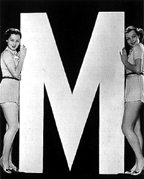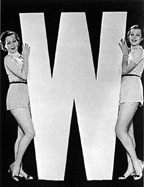The Phillies Choked in 2003 and 2004 but Nothing Compared to 1964
This article was written in October 2004, which was the 40th Anniversary of the Most Legendary Choke of All Time
by Mike Walsh
On July 5, 2004, the Phillies were in first place with a 3-game lead. They then proceeded to finish the month 8–14, highlighted by being swept in a crucial 4-game series in Florida. August was even worse, featuring a 1-9 home stand, the worst 10-game home stand in the team’s 122-year history. During those 10 pitiful games, the Fightin’s allowed a steal of home and hit into a triple play. When that home stand mercifully ended on August 19th, the Phils were 10 games behind Atlanta and out of the wildcard race, and the highly-touted $93 million team had a losing record. In a mere six-and-a-half weeks, their season was reduced to rubble. The Phillies had a decent September, and finished the season 86-76, but by then it was too late.
That classifies as an out-and-out choke, but it wasn’t as bad as 2003. On September 19, the Phillies were 1/2 game up on the Florida Marlins for the National League wildcard playoff spot. They had held the wildcard position for most of the summer and had given the region much reason for hope. The Phils lost seven of their final eight games and finished a solid five games behind the scrappy, clutch-hitting Marlins, thereby missing the playoffs. The Marlins went on to win the World Series.
Chokes as precipitous as those two are fairly rare, but we’re talking about the Phils here, a team that has one of the worst records in professional sports history, a team that has finished last more times than any other team in the NL. But the real problem with the Phillies’ recent flops is that it brings back some very painful memories, memories that I’ve tried to suppress for 40 years, memories that give me a screechingly sharp pain, like electro-shock, whenever they surface. The horror of which I speak is the 1964 Phillies’ season. No one who lived through that devastating late season swoon will ever forget it, especially not on this 40th anniversary.
A crushing choke is an especially painful thing for a young sports fan, which is exactly what I was in 1964. That was the first year I started watching baseball, and it was the first year I was able to fully comprehend box scores and standings and batting averages. Little did I know that I was becoming emotionally involved in a team heading for one of the most legendary and painful chokes of all time.
In ‘61, the Phillies set a major-league mark by losing 23 straight games and finished with a terrifyingly bad record of 47-107. But the Phillies brass saw potential in the core group of young players and wisely kept them together. In ‘63, the Phils actually had a winning season. Enthusiasm for the team was growing.
By ‘64, it was cool to be a Phillies’ fan. The team called up slugger Richie Allen to play 3rd and had future Hall of Fame pitcher Jim Bunning at the top of the rotation. But their biggest asset was their core of solid veterans: Chris Short, Johnny Callison, Tony Gonzalez, Tony Taylor, Art Mahaffey, Cookie Rojas, and shortstop Bobby Wine (whose ability to throw a runner out at first while falling toward third was a thing of beauty). They may not have had the stars of other teams, but they played sound baseball.
“We executed better than any team in the league,” Jim Bunning has said about the team. “Moving base runners, turning the double play. We seemed to do everything perfectly.”
Manager Gene Mauch was a genius of situational baseball. He was the father of what is today called “small ball.” He’d manufacture runs with bunts, grounders to the right side, and the hit-and-run. He also platooned at six positions, something unheard of in today’s game.
The Phils won eight of their first ten games that season and fought for first place through most of the first half of the season with San Francisco, which had prodigious talents like Willie Mays, Willie McCovey, Juan Marichal, and Orlando Cepeda.
At the All-Star break, the Phils were in first place. Everything was going right. Allen was headed for the Rookie of the Year award. Bunning pitched a perfect game at Shea Stadium on Father’s Day, the first perfect game in the National League since 1880. When outfielder Johnny Callison hit a dramatic three-run home run in the ninth to win the All-Star game, the Fightin’s seemed destined to win it all.
The Phils kept winning, and on September 20, they returned home from a West Coast road trip with a 6 1/2-game lead on second-place Cincinnati with only twelve games remaining. The city was buzzed. The World Series tickets and programs were printed. “Go Phillies Go” bumper stickers were everywhere. All they need was another four or five measly wins to clinch the pennant.
Then the Reds came to town. The first game of the series was scoreless in the 7th inning. With two out, the Reds had managed to get backup infielder Chico Ruiz on third. As pitcher Art Mahaffey went into his windup, Ruiz inexplicably broke for home. It was a crazy stunt, and Ruiz should’ve been out by 20 feet, but the shocked Mahaffey uncorked a wild pitch. Ruiz scored, and the Phils lost the game 1-0. The Phillies went on to get swept by the Reds. And then Milwaukee. And then St. Louis.
During the losing streak, Mauch panicked. He ignored half of the pitching staff and pitched Bunning and Short every other day. It didn’t work. As good as they were, Bunning and Short couldn’t do it alone. Their arms were spent. The clutch hitting disappeared. The bullpen failed. They lost late inning leads in several games. The infamous Philly boo-birds turned on the team. The normally red-faced, screaming Mauch became withdrawn and sullen.
The excruciating losing streak stretched to ten games. It was a nightmare that just wouldn’t end. The Phils managed to win the last two games of the season, but it was too late. As everyone says about 1964, the season was just twelve games too long for the Phillies.
It is an understatement to say it hurt. I was naïve and vulnerable, and I paid the price. Even my grandfather, with whom I watched many of the games, didn’t know what to say. We were shell-shocked. And forty years later, it still hurts. I learned a valuable lesson the hard way—life isn’t fair.
The next year, the Phils thought they were still close, so they traded a promising young pitcher named Ferguson Jenkins for a couple of forgotten veterans. Jenkins went on to have a Hall of Fame career for the Cubs. (On a side note, in 1984 the Phils traded minor leaguer Ryne Sandberg, another future Hall of Famer, to the Cubs for a below average shortstop. That still hurts too, in case you’re wondering.)
The Phils won 92 games in 1964 but managed only 85 wins the next year. By 1968 they were down to 76 wins, by 1969 to 63, and by 1972 they were true bottom-feeders—59 wins.
The 1964 season ingrained something insidious in my brain, something defeatist. Of course, the assassinations of the ‘60s, Vietnam, Kent State, Watergate, and the wretched Phillies and Eagles teams of the late ‘60s and early ‘70s didn’t help much either. (Seared into my memory is a 1968 Eagles game at Franklin Field when the crowd booed coach Joe Kuharich so mercilessly it seemed inhuman.)
What I learned from ‘64 was that no matter how good things look, no matter how smoothly life is going, no matter how close you are to success, something will happen at the very end to ruin everything. That’s what a calamitous choke can do to an impressionable kid. So for the Phils to choke and miss the playoffs the last two seasons truly sucks, but compared to the choke of 40 years ago, it was nothing at all.
Back to: [top] [MouthWash] [missionCREEP]
 outh
outh ash
ash